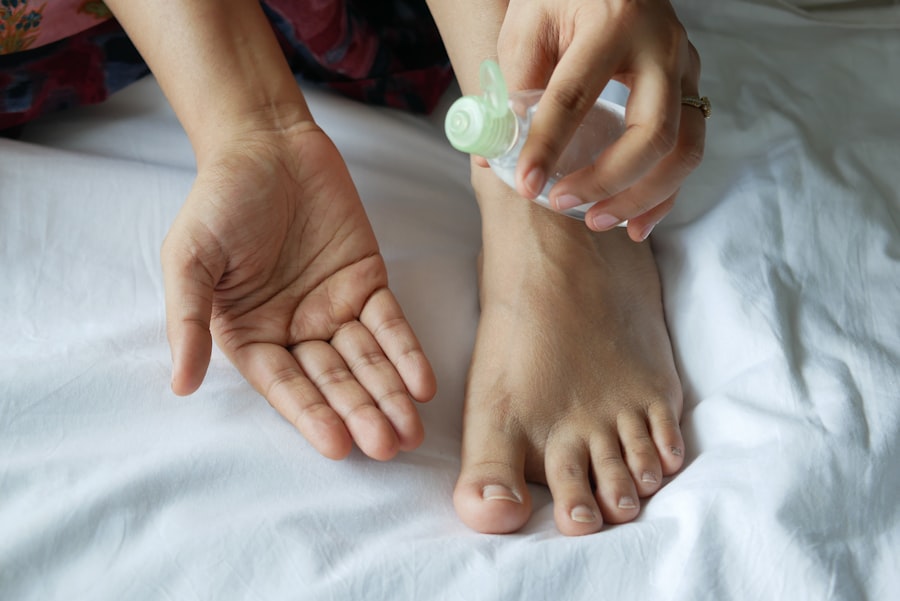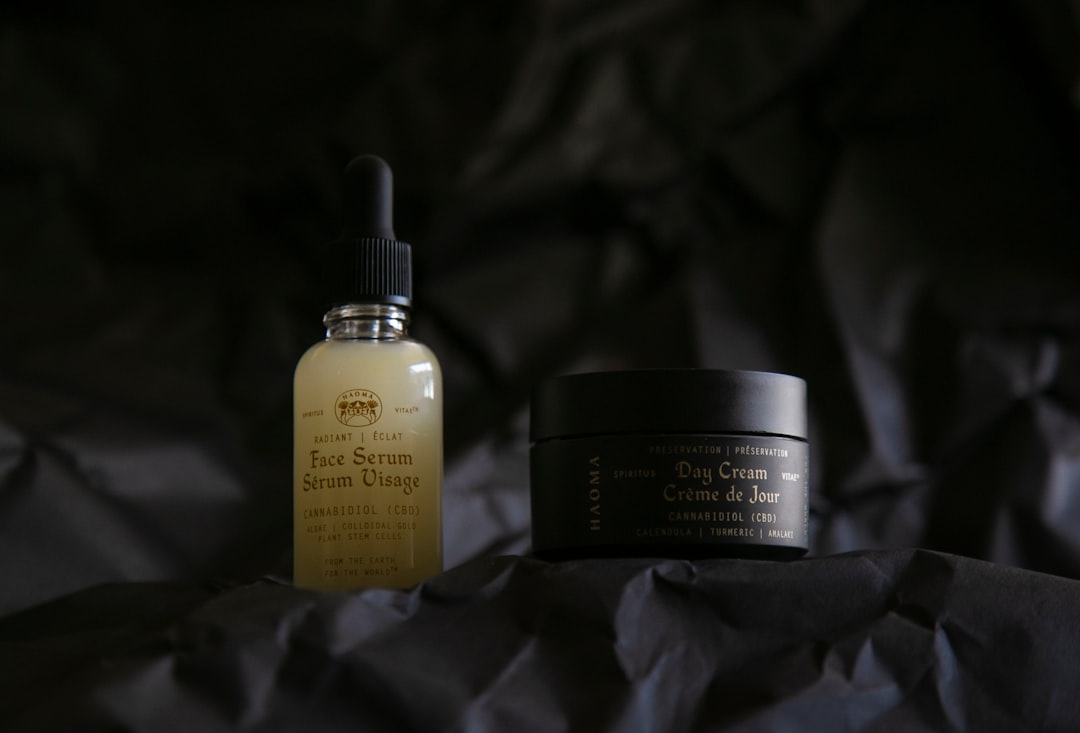Aftercare is a crucial aspect of any treatment, whether it’s a cosmetic procedure, medical intervention, or even a simple skincare routine. You may not realize it, but the steps you take after a treatment can significantly influence the results you achieve. Proper aftercare ensures that your skin heals correctly, minimizes the risk of complications, and enhances the overall effectiveness of the treatment.
By prioritizing aftercare, you are investing in your skin’s health and longevity, allowing you to enjoy the benefits of your treatment for a more extended period. Moreover, aftercare is not just about physical healing; it also plays a psychological role in your recovery. When you follow the recommended aftercare guidelines, you may feel more in control of your healing process.
Understanding the importance of aftercare can motivate you to adhere to the guidelines provided by your healthcare professional, ensuring that you achieve the best possible outcome.
Key Takeaways
- After care is crucial for the success of any skin treatment
- Follow post-treatment instructions carefully for best results
- Manage discomfort and side effects with recommended methods
- Protect the skin from further damage and irritation
- Avoid sun exposure to prevent skin damage and pigmentation
- Schedule and attend follow-up appointments as advised
- Use recommended skincare products and follow a specific regimen
- Maintain long-term results with consistent care and maintenance
Post-Treatment Instructions
Following any treatment, you will likely receive specific post-treatment instructions tailored to your individual needs. These guidelines are designed to help you navigate the recovery process effectively. It’s essential to read and understand these instructions thoroughly, as they often contain critical information about what to expect in the days and weeks following your procedure.
You might find recommendations regarding cleansing routines, moisturizing practices, and any restrictions on physical activities. In addition to the basic instructions, your provider may offer personalized advice based on your skin type and the nature of the treatment. For instance, if you’ve undergone a chemical peel or laser treatment, you may be advised to avoid certain products or activities that could irritate your skin.
Taking the time to follow these instructions diligently can make a significant difference in how well your skin responds to the treatment and how quickly it heals.
Managing Discomfort and Side Effects

Experiencing discomfort or side effects after a treatment is not uncommon, and knowing how to manage these sensations can greatly enhance your recovery experience. You may encounter symptoms such as redness, swelling, or mild pain, depending on the procedure you underwent. It’s essential to stay informed about what to expect so that you can prepare yourself mentally and physically for any discomfort that may arise.
To alleviate discomfort, over-the-counter pain relievers may be recommended by your healthcare provider. Additionally, applying cold compresses can help reduce swelling and soothe irritated skin. Listening to your body is vital; if you feel that something is amiss or if discomfort persists beyond what is expected, don’t hesitate to reach out to your provider for guidance.
They can offer tailored advice and reassurance, ensuring that you feel supported throughout your recovery journey.
Protecting the Skin
| Aspect | Metrics |
|---|---|
| Sun Protection | SPF level, UV index |
| Skin Care Routine | Cleansing, moisturizing, exfoliating |
| Environmental Factors | Pollution level, humidity |
| Diet | Water intake, antioxidant consumption |
Your skin is your body’s largest organ, and protecting it after a treatment is paramount for optimal healing. You may be advised to avoid touching or picking at the treated area, as this can introduce bacteria and lead to infections. Instead, focus on keeping the area clean and moisturized as per your provider’s recommendations.
Gentle cleansing with mild products can help maintain skin integrity without causing further irritation. In addition to cleanliness, consider incorporating protective measures into your routine. Wearing loose clothing over treated areas can prevent friction and irritation.
If you’ve had facial treatments, be mindful of hairstyles or accessories that might come into contact with sensitive areas. By taking these precautions, you are actively contributing to a smoother healing process and minimizing the risk of complications.
Avoiding Sun Exposure
One of the most critical aspects of aftercare is protecting your skin from sun exposure. After treatments like chemical peels or laser therapy, your skin may be more sensitive and vulnerable to UV rays. You should make it a priority to avoid direct sunlight for at least a few weeks post-treatment.
If you must go outside, wearing a wide-brimmed hat and seeking shade can provide additional protection. Sunscreen is your best friend during this time. Opt for a broad-spectrum sunscreen with an SPF of 30 or higher, and apply it generously to all exposed areas of skin.
Reapplying every two hours is essential, especially if you’re sweating or swimming. By taking these precautions against sun exposure, you are safeguarding your skin from potential damage and ensuring that your treatment results remain intact.
Follow-Up Appointments

Follow-up appointments are an integral part of the aftercare process. These visits allow your healthcare provider to assess how well you are healing and address any concerns you may have. It’s essential to attend these appointments as scheduled; they provide an opportunity for professional evaluation and guidance tailored specifically to your recovery journey.
During follow-up visits, don’t hesitate to ask questions or voice any concerns about your healing process. Your provider can offer insights into what is normal and what might require further attention. These appointments also serve as a chance for you to discuss any additional treatments or adjustments that may enhance your results.
By actively participating in follow-up care, you are taking charge of your health and ensuring that you achieve the best possible outcome from your treatment.
Skincare Products and Regimen
Choosing the right skincare products post-treatment is vital for maintaining healthy skin and supporting the healing process. You may be advised to avoid certain ingredients like retinoids or exfoliants for a period following your procedure. Instead, focus on gentle, hydrating products that promote healing without causing irritation.
Look for formulations that contain soothing ingredients such as aloe vera or hyaluronic acid. Establishing a consistent skincare regimen can also play a significant role in long-term results. Incorporate cleansing, moisturizing, and sun protection into your daily routine while being mindful of any specific recommendations from your provider.
As your skin heals and becomes less sensitive, you can gradually reintroduce other products into your regimen. This thoughtful approach will help ensure that your skin remains healthy and vibrant long after your treatment.
Long-Term Maintenance
Long-term maintenance is essential for preserving the results of any treatment you undergo. Aftercare doesn’t end once your skin has healed; it evolves into a commitment to maintaining healthy skin over time. Regularly scheduled treatments or touch-ups may be necessary depending on the type of procedure you had done.
Staying in touch with your provider can help you determine the best maintenance plan tailored to your needs. In addition to professional treatments, adopting a healthy lifestyle can significantly impact your skin’s appearance in the long run. Staying hydrated, eating a balanced diet rich in antioxidants, and avoiding smoking can all contribute to healthier skin.
Furthermore, maintaining a consistent skincare routine will help protect against environmental stressors and keep your skin looking its best for years to come. By prioritizing long-term maintenance, you are ensuring that the benefits of your treatment endure well into the future.
After receiving treatment at a laser clinic, it is crucial to follow proper aftercare instructions to ensure optimal results and minimize any potential side effects. One helpful resource for post-treatment care is the article “5 Essential Tips for Laser Hair Removal Aftercare” found at this link and this link.
FAQs
What is laser clinic after care?
Laser clinic after care refers to the post-treatment care and maintenance required after undergoing laser treatments at a clinic. This may include following specific instructions provided by the clinic to ensure proper healing and optimal results.
What are some common after care instructions for laser treatments?
Common after care instructions for laser treatments may include avoiding sun exposure, using recommended skincare products, keeping the treated area clean and moisturized, and avoiding certain activities that may irritate the skin.
How long does laser clinic after care typically last?
The duration of laser clinic after care can vary depending on the type of laser treatment received and individual healing times. It is important to follow the specific after care instructions provided by the clinic until the skin has fully healed.
Are there any potential risks or complications associated with laser clinic after care?
Following proper after care instructions is crucial to minimize the risk of potential complications such as infection, scarring, or changes in pigmentation. It is important to consult with the clinic if any concerns or unexpected symptoms arise during the after care period.
Can I resume my normal skincare routine after laser treatments?
It is important to follow the specific after care instructions provided by the clinic before resuming your normal skincare routine. This may include avoiding certain products or treatments for a period of time to allow the skin to heal properly.
When should I seek medical attention during the after care period?
If you experience severe pain, excessive swelling, prolonged redness, or any other concerning symptoms after laser treatments, it is important to seek medical attention from the clinic or a healthcare professional.





